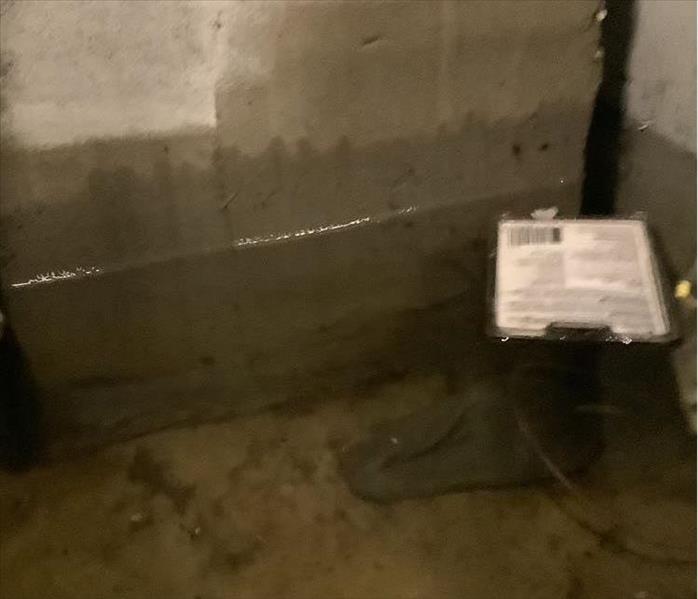Frozen Pipes and Water Damage: Everything You Need to Know
2/14/2024 (Permalink)
As temperatures drop during the winter months, the risk of frozen pipes in homes significantly increases. While frozen pipes might seem like a mere inconvenience, they can lead to severe water damage if not addressed promptly. Understanding the causes, signs, prevention, and necessary steps to take in the event of frozen pipes is crucial to safeguarding your home.
Causes of Frozen Pipes
Pipes tend to freeze when exposed to extremely low temperatures, especially in unheated or poorly insulated areas of the house such as attics, basements, crawl spaces, and exterior walls.
When temperatures plummet below freezing, the water inside pipes can freeze and expand, causing pressure to build up and potentially lead to pipe bursts. Poorly insulated pipes are more susceptible to freezing. Lack of insulation in vulnerable areas leaves pipes exposed to harsh outdoor temperatures. Another common cause includes gaps or cracks in walls, foundations, or around pipes' entry points that can expose them to cold air. This increases the likelihood of freezing.
Signs of Frozen Pipes
Identifying frozen pipes early can prevent potential water damage. Look out for these signs:
- Frost on Visible Pipes: Visible pipes in unheated areas might have frost on their exterior, indicating freezing.
- No Water Flow: If faucets produce little to no water or only a trickle, it could indicate frozen pipes.
- Unusual Odors: An odd smell could be due to a blockage in the pipes caused by freezing.
Prevention Tips
Taking preventive measures can significantly reduce the risk of frozen pipes.
- Properly insulate pipes in vulnerable areas using pipe sleeves, heat tape, or foam insulation.
- Keep the thermostat at a consistent temperature, even during cold nights. Allow warm air to circulate pipes by opening cabinet doors.
- Allowing faucets to drip can relieve pressure buildup in the pipes and prevent freezing.
- Seal gaps or cracks in walls, windows, and foundations to prevent cold air from reaching pipes.
Dealing with Frozen Pipes
If you suspect frozen pipes, take immediate action:
- Keep Faucets Open
- Apply Heat
- Call a Professional
In conclusion, preventing frozen pipes through insulation, adequate heating, and vigilance is key to avoiding potential water damage in your home during winter. Being proactive and knowing how to identify and address frozen pipes can save you from costly repairs and the hassle of dealing with water damage emergencies. Remember, in severe situations, seeking professional assistance is always advisable to ensure your home is protected. Don’t hesitate to give our SERVPRO of Shrewsbury/Westborough a call today!





 24/7 Emergency Service
24/7 Emergency Service
